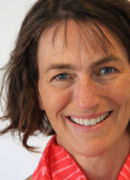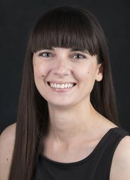
Christopher Peterson Gold Medal
The Christopher Peterson Gold Medal honors an IPPA member who exemplifies the best of positive psychology at the personal, professional, and academic levels. This award is named after Christopher Peterson, a beloved IPPA Fellow, professor, scholar and pioneer in the field of positive psychology. Peterson’s many scholarly contributions include his work on the character strengths and values classification and assessment with Martin Seligman. On a personal level, Peterson was known for his sincerity, humility, integrity, sense of humor and generosity.
Barbara L. Fredrickson
University of North Carolina at Chapel Hill
Barbara L. Fredrickson, Ph.D. is the Kenan Distinguished Professor of Psychology and Director of the Positive Emotions and Psychophysiology Lab at the University of North Carolina.
More
Barbara L. Fredrickson, Ph.D. is the Kenan Distinguished Professor of Psychology and Director of the Positive Emotions and Psychophysiology Lab at the University of North Carolina. She is a leading scholar studying positive emotions and their role in the promotion of individual and collective well-being. Her work is funded by the U.S. National Institutes of Health. Dr. Fredrickson has provided key contributions to the advancement of knowledge in positive psychology, through peer-reviewed articles published in prestigious journals book chapters, and books including Positivity and Love 2.0. Dr. Fredrickson’s work has been recognized with numerous honors, including the American Psychological Association’s Templeton Prize in Positive Psychology and the Society of Experimental Psychology’s Career Trajectory Award.



